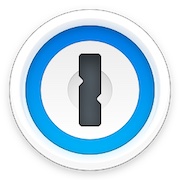Artificial Intelligence (AI) is reshaping how we work and lead. At 1Password, we see AI as a powerful accelerator that helps our teams focus on the work that matters most. To explore what it means to lead in this new era, we sat down with Nancy Wang, VP/Head of Engineering. Nancy shares how AI shows up in her day-to-day, how she inspires her team to be curious, and why human skills like trust matter more than ever.
Meet Nancy
Hi Nancy! Tell us about yourself and what you lead at 1Password.
I lead Product Engineering at 1Password, which means anything that touches the end user rolls up to me. That includes 1Password Extended Access Management, our consumer and enterprise password manager, and our developer + AI portfolio. If it has bits or policies and someone interacts with it, we’re probably building it!

How does AI show up in your work, and what role are you playing in shaping its use at 1Password and beyond?
AI shows up in nearly every layer of my work, both in what we ship and how we operate. At 1Password, I lead the engineering org responsible for our AI for Security vision (how we embed AI into our core products), as well as our Security for AI roadmap (how we build developer-facing tools that make it easier to ship AI-powered applications with security built in from day one).
Before 1Password, I was an Investment Partner at Felicis Ventures, where I backed startups at the intersection of AI and security. I also dabbled in building multi-agent systems myself; most notably, the AI Interviewer at Mercor (an AI recruiting platform used by OpenAI). I’ve seen this space from the infra layer to the app layer, and I’m especially focused on helping teams scale AI responsibly, without compromising trust, safety, or control.
Embracing AI at 1Password
As 1Password continues its AI journey, how do you see AI tools accelerating our ability to perform at a high level as a team?
AI helps us move faster and focus on what matters most. It takes care of repetitive, time-consuming tasks, like sorting through information or drafting early versions of content, so our teams can spend more time making thoughtful decisions, building great experiences, and solving real customer problems. It’s about working smarter, not just faster. At 1Password, we’re focused on using AI to eliminate toil so our engineers can stay focused on higher-leverage work, like solving challenging architecture problems or shipping features that directly improve user trust and security.
We talk a lot about putting people first and keeping humans at the center of everything we do. How do you determine which parts of your work benefit from AI augmentation—and which should stay deeply human?
For me, it comes down to intent and impact. I use AI to speed up the parts of work that are mechanical: summarizing notes, drafting docs, surfacing patterns. But when it comes to decisions that affect people, teams, or culture, those decisions need to stay human. Empathy, judgment, and trust-building can’t be outsourced. AI can support the process, but it shouldn’t replace the relationships.
Fostering a culture of AI confidence
How do you balance transparency and confidence when you’re leading a team through new, unfamiliar AI tools or topics?
I try to lead with curiosity and honesty. If something is new or unproven, I say that out loud, and then we explore it together. Confidence doesn’t mean pretending to have all the answers; it means creating space for learning, asking good questions, and showing your team that it’s okay to experiment, fail, and improve.
What are some practical ways leaders can build psychological safety, celebrate experimentation, and encourage their teams to explore AI capabilities with confidence, not fear?
Start by giving people permission to tinker, with zero expectations of a polished outcome. In the past, I’ve run low-stakes AI hack weeks, shared “weird but cool” prototypes in open forums, and celebrated learnings just as much as wins. When leaders model curiosity and normalize not knowing, it creates space for teams to explore without fear of getting it wrong. That’s where the real breakthroughs happen. So on that note, please look out for a future AI Hackathon sponsored by ProdEng!
Looking ahead
How can we continue to ensure that an inclusive range of perspectives and voices are part of the AI conversation?
We need to be intentional about who’s in the room, early and often. That means including voices across disciplines, backgrounds, and lived experiences in both the design and deployment of AI systems. It’s not just about fairness; it’s about building better products. The more perspectives we include, the more resilient, trustworthy, and helpful AI products become.
What do you think the future of leadership will look like—and which human skills will become even more important—in a world where AI is embedded into how we work?
In a world where AI is everywhere, the most valuable leadership skills will be the ones AI can’t replicate: empathy, judgment, storytelling, and the ability to build trust across people and teams. AI might take on tasks, but it won’t replace the human ability to connect dots across messy contexts or lead through ambiguity. The future of leadership isn’t about competing with AI; it’s about learning how to lead with it, and making sure we use it to elevate people, not replace them.
Leading with confidence in the age of AI
As Nancy shared, confident leadership isn’t about perfection. It’s about creating space for curiosity and unlocking our ability to achieve bigger goals. As we lean into AI’s potential, our core values—keep it simple, lead with honesty, and put people first—remind us to focus on what matters most and create space for learning while staying true to our human-centered roots. Together, we’re building a culture where AI supports the human experience and innovation thrives.

 by 1Password on
by 1Password on


